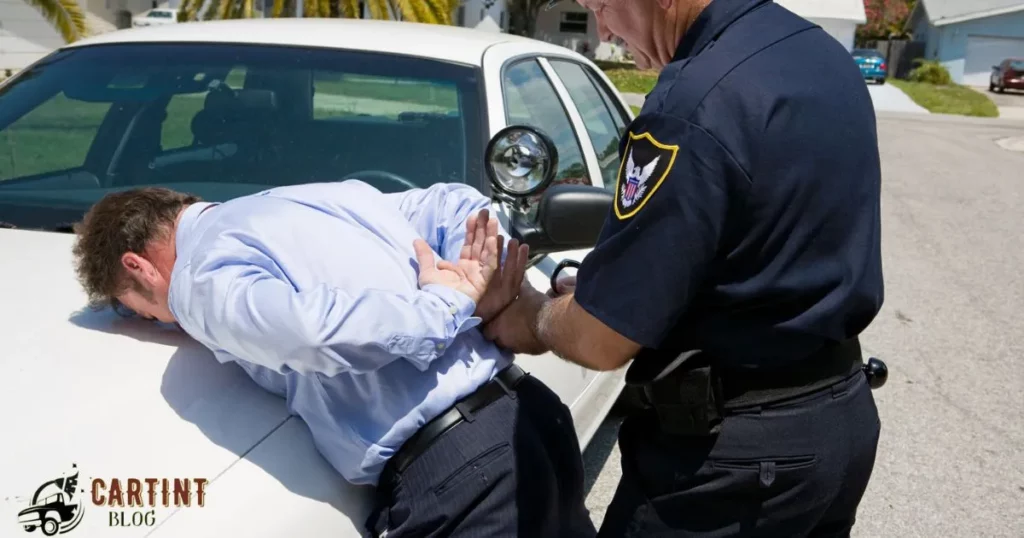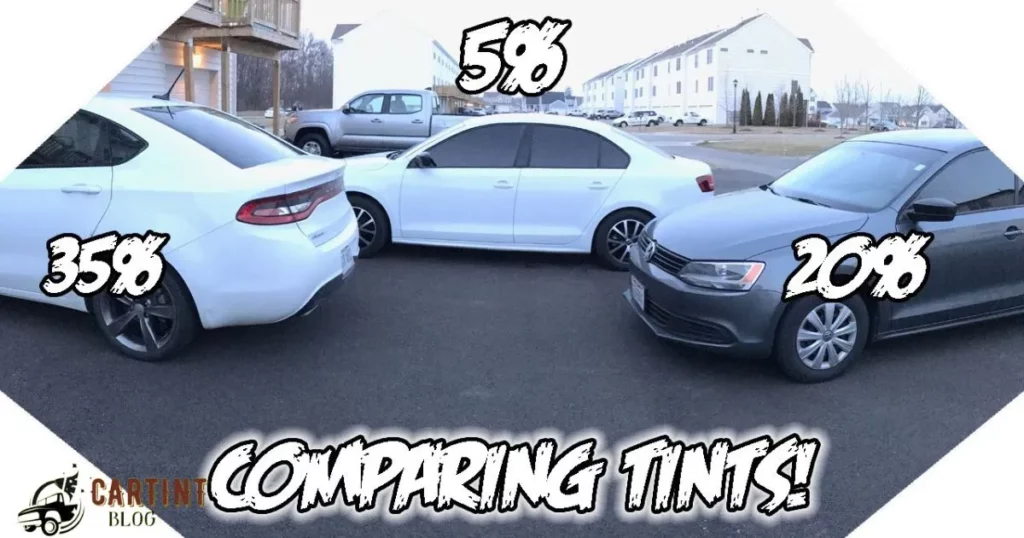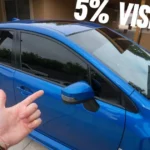Being pulled over for window tint happens when the darkness of your car’s tint violates state laws. If the tint is too dark. Police officers enforce these regulations to ensure drivers can see clearly and maintain road safety. Getting stopped for window tint often involves a check by law enforcement to ensure compliance with tinting laws.
Wondering if your car’s window tint could land you in trouble? Can You Be Pulled Over For a Window Tint? Unravel the mystery surrounding tinted windows and discover whether they might attract the attention of law enforcement. Understanding these regulations could save you from unexpected stops on the road.
Stay with us to explore the regulations surrounding window tint and driving. Discover the rules and guidelines that dictate the legality of tinted windows on vehicles. Understanding these guidelines can help you navigate the roads without unexpected stops due to tint violations.
What The Police Can’t Pull You Over For
Police cannot pull you over without a valid reason. They must have a legitimate cause, like a traffic violation or suspicion of illegal activity, to stop your vehicle. They cannot stop you solely based on your race, gender, or ethnicity, as it violates your civil rights.
Furthermore, the police cannot pull you over for actions that are not traffic-related. They can’t stop you just because they don’t like your bumper stickers or because you’re not breaking any traffic laws. Understanding your rights regarding police stops helps ensure fair treatment and protection under the law.
What Are Primary And Secondary Violations?
Primary violations are direct infractions that law enforcement can pull you over for immediately, such as speeding or running a red light. These offences pose immediate safety risks and give police officers the authority to stop and cite you on the spot.
On the other hand, secondary violations are related to less immediate safety concerns, like having tinted windows that exceed legal limits. Law enforcement typically address secondary violations after pulling you over for a primary offence or during routine checks.
Primary violations are serious offences that can lead to immediate stops by the police, directly impacting road safety. Secondary violations, although less immediate, can still result in citations and fines, often addressed during routine checks or after being pulled over for a primary violation.
What Happens If Law Enforcement Stops You For A Secondary Violation?
If law enforcement stops you for a secondary violation, they might issue a warning or a ticket for that specific infraction. Officers often use secondary violations, like a broken tail light or expired tags, as a reason to pull over a vehicle. Once stopped, they may also check for other potential violations, so it’s essential to address these issues promptly to avoid further trouble with the law.
Getting stopped for a secondary violation means officers noticed a minor issue with your vehicle or driving. This stop could lead to a citation or a conversation with law enforcement about the observed violation. It’s crucial to comply and address the concern to prevent any escalation or additional citations.
Three Ways Dual Military Divorce Is More Complicated
Navigating a dual military divorce adds complexity, especially when coordinating deployments, affecting court appearances. Shared assets management becomes trickier with partners stationed elsewhere, impacting property division negotiations. Understanding the 2023-2024 Window Tint Laws By State Chart is crucial amid these challenges.
Navigating child custody arrangements becomes challenging when both parents have unpredictable duty schedules, requiring careful planning for visitation and parenting responsibilities. Unlike civilian divorces, dual military divorces involve unique challenges, such as navigating military-specific laws and regulations.
Resolving issues like spousal support can be complicated by military allowances and benefits, adding layers to financial settlements. Ensuring compliance with military rules regarding benefits, such as healthcare and pensions, adds another dimension to the divorce process, making legal proceedings more intricate and demanding.
Tips For A Happy Holiday Custody Schedule
- Plan Ahead: Establish the holiday custody schedule well in advance, considering both parents’ preferences and children’s needs.
- Flexibility Matters: Remain open to adjustments and compromises to accommodate unexpected changes or last-minute requests.
- Communication is Key: Maintain clear and open communication with the other parent to ensure a smooth holiday schedule.
- Focus on the Kids: Prioritize the children’s well-being and happiness during the holidays, fostering a positive and supportive atmosphere.
- Create Traditions: Establish new traditions or continue existing ones to make the holiday experience special for the children.
- Be Respectful: Show respect for each other’s time with the children and avoid conflicts or negative interactions during exchanges.
- Document Agreements: Keep a record of agreed-upon holiday schedules to prevent misunderstandings or conflicts in the future.
What Happens When You Miss A Child Support Payment In Virginia?

When this happens, the consequences can be swift. The state takes non-payment seriously, often resulting in various penalties. These can include wage garnishment, suspension of driver’s licences, or even legal action such as fines or imprisonment. It’s crucial to address missed payments promptly to avoid escalating consequences.
Failure to meet child support obligations in Virginia triggers legal repercussions. The state enforces strict measures, such as seizing tax refunds or placing liens on property. The Department of Social Services can intervene, impacting credit scores and creating obstacles in obtaining loans or housing.
Can Cops Pull You Over For Window Tint?
Sure thing! tint varies by state laws, so it’s crucial to ensure your tint complies. Officers often use a tint metre to check if it meets the legal limit during routine stops. Following these guidelines helps avoid being stopped solely for window tint violations and keeps you compliant with the law.
When your car’s window tint doesn’t meet the legal requirements, cops have the authority to stop you. They typically use a tint metre to measure the darkness of the tint during traffic stops. Adhering to state regulations on window tint ensures a smoother drive without the risk of being pulled over for this violation.
Can I Be Pulled Over Solely For Window Tint?
Sure thing! Driving with excessively dark window tint could result in getting pulled over by law enforcement. They may stop you solely due to the tint’s darkness violating state regulations. Window tint laws vary by state, so ensuring compliance can prevent potential stops while driving.
Officers often use tint metres to measure the darkness, giving them cause to pull you over if it exceeds legal limits.Understanding your state’s tinting laws is crucial. Getting pulled over solely for window tint violations is common when the tint darkness doesn’t meet legal standards.
Staying informed and adhering to these regulations can prevent unnecessary stops and ensure a smoother driving experience. Law enforcement frequently checks window tints, so ensuring yours complies with local laws can help avoid these situations.
Can A Police Officer Pull You Over For Improper Window Tint In New Jersey?
Sure! In New Jersey, a police officer can pull you over if your car has improper window tint. The law specifies the level of darkness allowed for tinted windows, and if your tint exceeds this limit, it gives the officer a reason to stop you. Ensure your window tint adheres to New Jersey’s regulations to avoid potential traffic stops due to improper tint.
Knowing the permitted window tint levels in New Jersey is crucial. If a police officer spots excessively dark tint during routine checks or while patrolling, they have the authority to stop your vehicle. Complying with the state’s guidelines on window tint can prevent unnecessary stops and ensure you stay within the legal boundaries while driving in New Jersey.
Window Tint Regulations In New Jersey
In New Jersey, window tint rules are clear-cut. The front side windows must allow over 70% of light in, while the rear side and rear windows can have any darkness. These rules aim to ensure proper visibility for drivers and law enforcement.
Violating these guidelines can result in fines and possible removal of the tint. It’s crucial to adhere to these regulations to avoid legal issues while enjoying the benefits of window tinting in New Jersey.
What Are The Reasons That The Police Can Pull You Over In New Jersey?
| Reason for Police Stop | Description |
| Traffic Violations | Speeding, running red lights, illegal turns, etc. |
| Equipment Violations | Faulty headlights, broken tail lights, tinted windows |
| Suspicion of DUI/DWI | Erratic driving behaviour, suspicion of impairment |
| Seat Belt Violations | Failure to wear seat belts, violations for occupants |
| Registration/Insurance | Expired registration, lack of insurance proof |
| Distracted Driving | Texting while driving, other distractions |
| Probable Cause | If an officer suspects other criminal activity |
Are There Times When The Police Can Pull You Over Without Cause In New Jersey?
In New Jersey, police can stop you without cause at sobriety checkpoints or roadblocks. These stops aim to ensure drivers are not under the influence. If the police suspect a vehicle is involved in criminal activity, they can pull it over without a specific cause.
Outside of these situations, the police generally need a reason to pull you over in New Jersey. They require a valid reason, like a traffic violation or suspicious behaviour, to initiate a traffic stop.
Victims Of Improper Traffic Stops In New Jersey Can Call Our Law Firm For Support

If you’ve faced improper traffic stops in New Jersey, our law firm stands ready to offer support. We assist victims dealing with unjust traffic stops, ensuring their rights are protected. Our team provides guidance and legal assistance to those affected by these situations, empowering them to navigate the legal process confidently.
In New Jersey, individuals who encounter unjust traffic stops can reach out to our law firm for help. We’re dedicated to supporting victims through these challenges, advocating for their rights and offering the necessary legal aid. Our firm stands as a resource for those who have experienced improper stops
Chances Of Getting Pulled Over For Tint
The likelihood of getting pulled over for tinted windows depends on various factors. Factors such as how dark the tint is and local law enforcement priorities determine the risk. If your tint violates regulations or draws attention, the chances of being stopped increase. Staying within legal limits reduces the chances of getting pulled over for window tint.
Law enforcement officers often notice overly dark tints during routine patrols. They might stop vehicles if the tint obstructs visibility or seems unusually dark. Staying aware of tinting laws and ensuring compliance minimizes the chances of getting pulled over for window tint violations.
What To Say If You Get Pulled Over For Tint
If you’re stopped for window tint, stay calm and be polite to the officer. Politely explain that you were unaware of any issues with your window tint. You can ask if there’s a specific problem or if there’s a way to resolve the situation without a citation.
It’s essential to have necessary documents like your driver’s license, registration, and insurance ready. You can also mention that you’ll rectify the tint if it’s against regulations. Being cooperative and respectful can often lead to a warning rather than a ticket in such situations.
How To Avoid Getting Pulled Over For Tint
To steer clear of being pulled over for tinted windows, abide by your state’s legal tint limits. Check your local regulations to ensure your car’s tint complies with the permissible darkness levels. Regularly maintain your windows to prevent excessive fading or darkening that might violate the law.
Being proactive in adhering to these guidelines minimizes the chances of catching law enforcement’s attention on the road.Another way to avoid getting stopped for window tint violations is to have your tint professionally installed. Choose certified technicians who understand and follow the legal limits for tint darkness.
Opt for high-quality tint materials to ensure durability and prevent the tint from exceeding permissible levels over time. By taking these precautions, you can significantly reduce the risk of getting pulled over due to window tint issues.
Will I Get Pulled Over For 5% Tint

Having 5% tint on your windows might attract law enforcement attention. The darkness of the tint is often below legal limits, making it more likely to catch the eye of police officers. They could stop you to check if your tint complies with the allowable limits set by the law.
It’s important to know your local regulations to avoid getting pulled over for having excessively dark window tint. Understanding these limits can prevent unnecessary stops while driving with tinted windows.
What Happens If You Get Caught With Tinted Windows
If caught with tinted windows that don’t meet legal standards, law enforcement may issue a citation or a fine. They might request you to remove the tint on the spot or present proof of compliance later. Being caught with illegal window tint can result in penalties, impacting your driving record or even requiring a court appearance.
Getting caught might also involve legal procedures, affecting your driving record and possibly requiring a court appearance. Complying with tint regulations helps avoid these situations, ensuring a smooth driving experience without penalties or legal issues.
Does A Window Tint Ticket Go On Your Record
A window tint ticket affects your record differently based on your location. In some states, it might show up on your driving record, impacting insurance rates. In other places, it might not go on your driving record but can still result in a fine.
The impact of a window tint ticket on your record varies by state. While some states add it to your driving history, affecting insurance premiums, others handle it without it showing up on your record but still require paying the fine. Checking local laws helps understand its consequences accurately.
FAQ’s
What’s the darkest legal tint?
The darkest legal tint varies by state, usually 20-35% VLT (visible light transmission). Check your local laws for specifics.
Can you just pull off the tint?
Yes, but it can be tricky. Heat and adhesive removers help, but it might leave residue requiring professional removal.
How dark is 70 percent tint?
70% tint allows 70% of light to pass through, making it relatively light and offering some UV protection.
Can cops pull you over for tint in Texas?
Yes, if your tint violates Texas law. Officers can stop vehicles to check for compliance with tinting regulations.
Conclusion
In summary, understanding the regulations surrounding window tint is crucial for drivers. Can You Be Pulled Over For Window Tint? Yes, excessively dark tint that violates state laws can lead to traffic stops. It’s essential to be aware of the specific tinting limits set by your state to avoid potential fines or being pulled over by law enforcement.
Compliance with these regulations not only ensures legal adherence but also contributes to road safety. Maintaining visibility while driving is critical for everyone’s safety. So, staying informed about tinting laws not only prevents potential traffic stops but also promotes responsible driving practices for a safer road environment.



